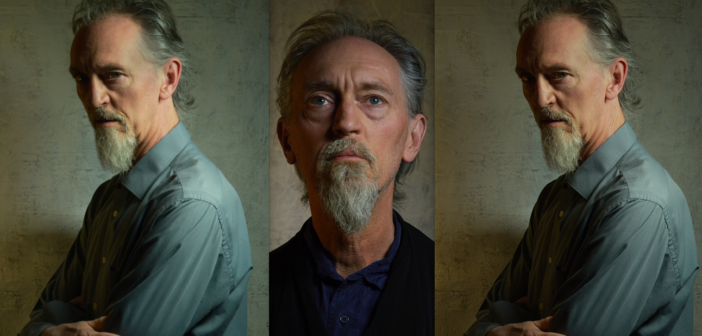Norman Westberg is a guitarist, best known for his work with the unpredictable and frequently ferocious Swans. Yet alongside this he’s been quietly releasing limited edition solo albums which highlight a more experimental and gentler side to his personality that isn’t reliant upon volume or bombast. Initially issued himself, they’ve since been re-released on Lawrence English’s Room40 label. You can read our review of MRI here, and 13 here. His latest, After Vacation is his most realised with English acting as a producer and helping realise his ideas.
What was happening to you when you were writing/ recording After Vacation?
I was recording ‘After Vacation’ during the breaks from Swans touring. The title started as a working title, but stuck. I came back from a family vacation to start compiling tracks to send to Lawrence English, and started to really like the sound and idea of the title. Nothing really heavy as far as deep meaning, people can think what they want.
After Vacation feels so dense, warm, relaxing. Possibly the opposite of Swans. Do you feel a relationship between the two – like you couldn’t have one without the other? Or is that oversimplifying things?
My time in Swans, and particularly the influence of Michael Gira, showed me the value of slowing down. Not just tempo, but the development of musical passages. Swans was a musical awakening for me in that I was asked to play what I felt, rather than something that was written, or even able to be written.
Norman Westberg – Soothe The String from ROOM40 on Vimeo.
You speak of moving beyond the one take “it is what it is,” of your previous solo releases. What prompted this, and when in the process was this decision made?
Lawrence rereleased my earlier Limited Edition Etsy CDs. He told me that in any of my 15 plus minute pieces, he could hear sections that could work on their own. I think of the longer pieces as conversations. The pieces on After Vacation are more of a comment on an event.
Did you have any musical reference points?
I am not a big one for figuring out other people’s songs. As I play, I may stumble upon something that feels like some music that I have heard. I try to shape that to be my own. In my experience, people don’t hear the musical references that I make unless I point them out.
How much writing was done before recording? Does improvisation play a role in your work?
The majority of my music is improvised. I mentioned earlier the idea of conversation. I come up with a subject(feel), then expand on that as a moving dialog.
What role did Lawrence English have with this album? I can hear real links in the density and swells of sound to some of his more recent work. Did you talk with him about this?
Lawrence has a huge role in this recording. He made sense of what I was sending him, and turned it into songs. Almost snippets of my musical conversations.
You’ve been playing guitar for a long time now. How do you feel your playing, or your understanding of the instrument has developed over the years? Was there a specific reason behind only using the guitar (and pedals) on this release?
I feel most comfortable playing guitar. Over the years I have figured out what makes me happy with my playing, and what to avoid. Though I love drums, I feel that I can cover the sense of rhythm with the use of string attack and particular pedals.
Can you talk a little about your approach? It feels like you are delaying delays and maybe working with an ebow and loops?
My general approach is to split the signal to various delays, then into two amps. I own a few guitars, so I will try out different ones depending on the mood that I am looking for. On this recording there are mono tracks recorded and mixed with other tracks, like an ebow, or bowed guitar. Tracks are sometimes looped, then delays are manipulated, or vice versa depending on where in the tale I am.
I would call this ambient music, though it’s possibly a bit denser, a little more muscular and a little noisier than much of the ambient music that I have heard. How do you conceptualise After Vacation?
I want my music to be relaxing to some extent. I would like the listener to get lost in it, and imagine their own scenarios. Reclining in a dim room is a bit of an ideal position. The track ‘Levitation’ was originally recorded for my wife to meditate to. Lawrence made it into more of a song, bringing in and mixing the parts. I consider my music to be ambient at times. I have called it ‘a soundtrack for inner debates.’
How do you think your solo work has evolved over time?
I have become more focused, maybe more precise with where I want the music to go. It is just me playing guitar, working hard at sounding like myself.
You can find After Vacation here.




